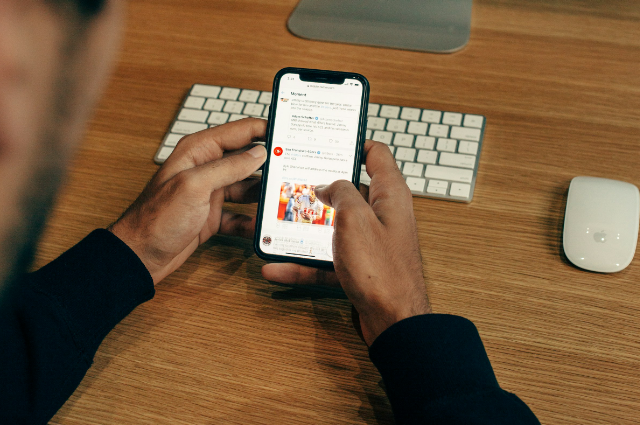
Photo by charlesdeluvio on Unsplash
There are young people growing up in this state of hyperconnection, where everything within them has truly become the shape and definition, not just how they connect but also how they remember. So, we have Instagram, Snapchat, and TikTok promising to capture and immortalize moments most precious to one, where I often wonder if these tools are helping us remember life as it is or curate a rendition that is more palatable to the audience?
Memory, in its rawest sense, is an archive of private records: messy, vibrant, and ephemeral. It is recalled through feelings and sensation and often from the imperfect relationships between impressions. However, memories have taken a new form: properly filtered snaps, with tedious highlight reels edited into consumerism for public consumption, going up on various social media outlets. It is no longer sufficient to merely experience a moment; we feel compelled to capture it, enhance it, and to share it. In so doing, I fear that we have started to curate our lives for somebody other than ourselves.
Perhaps one of the most fascinating shifts-that we go from experiencing life first, then remembering it to thinking about how we're going to present an experience even as it happens. Now I find myself at a lovely sunset, calculating the best angle for a perfect photo instead of gazing at the view and gulping it in. This constant awareness of an invisible audience can warp the way we engage with the present. Instead of sinking into the moment, we become directors, crafting scenes to fit the aesthetic of our digital persona. We become narrators, but not necessarily to narrate our lives to ourselves. It is for an audience we may not even know.
There's also the question of what we choose to remember. Social media encourages us to present the best version of ourselves—happy, successful, adventurous. But life is rarely that clean. The truth is full of unglamorous moments, awkward silences, and struggles that never fit neatly into a 15-second clip. I think about how much I left out-the days I lost, the conversations that shaped me in deep-seated ways, the small victories no one would like or share. My memory is digital, and, as such, my digital memory is curated to represent not necessarily what has happened but what it would be shareable.
What fascinates me is how this shift changed the kind of memory visiting. Memories depressed themselves, leaving only the strongest moments behind. Now, of course, our memories exist in a permanent record form, complete with timelines, whose refresh buttons contain prompts that remind us that we were once this or that; with a few clicks, I can replay any moment from the last ten years, but then comes the disturbing question of whether I am replaying the real memory, or the polished, edited version I created online. These digital memories, although convenient, feel detached from the raw, emotional experience of living them.
This phenomenon raises disturbing questions: whether curating the lives we put out there for others comes with a cost of losing ourselves in the process. Social media offers tools to shape identities, but it also imposes perfection and constant performance. By trying to shoot and share moments that would be liked and appreciated by the audience, we might lose some of the personal connections we have with those moments. Are we living for ourselves, or for likes and comments?
This is the truth: Social media has given us the tremendous power to document and, hence, preserve memories while bringing new barriers about how to experience and value those moments. The more I reflect on my own relationship with these platforms, the more I realize that true memory is something that cannot be filtered or edited-it's all felt deeply, privately, and imperfectly. But are we willing to let the compulsion to curate lapse and just let life happen, trusting that the most important memories will stay with us, even without a digital record?
Perhaps in a world that encourages sharing everything, the most radical thing we can do is keep some things for ourselves.
